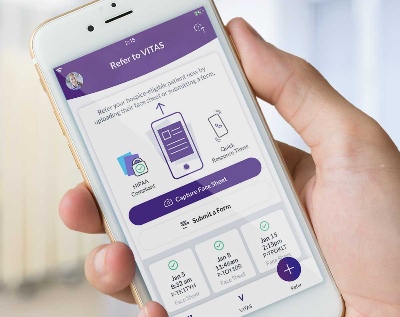By Heather Veeder, MD, Regional Medical Director, VITAS Healthcare
About 6.2 million adults in the United States have heart failure.1 In fact, heart failure is the leading cause of hospital admission in the US.2
As the disease progresses, the many challenges associated with heart failure significantly rise. For patients with advanced heart disease, hospital readmissions including ICU admissions, and ED visits significantly increase in frequency over time.
Additionally, the disease and its complications exact a heavy emotional toll on the patient. With a patient continually concerned about when their next cardiac event will occur, they wonder when they will have to return to the hospital. Their anxiety may increase as they question what care options they have left.
Families and caregivers are also affected, with poorer health outcomes, financial challenges, and social isolation.
Clinical Care Options for Advanced Heart Disease Patients
When ongoing cardiac treatments are no longer effective, when worsening symptoms no longer respond, or when patients decide side effects, pain, and other symptoms are no longer tolerable, hospice may be the best option.
Many of the medical interventions provided in the hospital can be delivered via hospice care in an outpatient setting of the patient’s choice.
As Dunlay, et al.,3 discovered, healthcare utilization peaks at end of life for heart failure patients. Hospice care can support high-acuity patients with complex modalities while delivering coordinated clinical and psychosocial care from a team of experts.
Hospice Care Reduces Unnecessary Hospital Readmission
Research demonstrates that patients with heart failure in hospice care have fewer emergency department visits and hospital readmissions. In the population studied by Yim, et al.,4 hospice enrollment in heart patients was associated with:
- Earlier referral to hospice has been demonstrated to improve the quality of end-of-life care received by patients and their families4
- Among patients discharged alive after hospitalization because of acute decompensated heart failure, referral to hospice was associated with a 5% 30-day readmission rate, versus a 41% readmission rate for hospice-eligible patients not referred to hospice.5
- Patients who received early hospice care were 10x less likely to be admitted to the hospital during their final month of life than their non-hospice peers.6
If your advanced heart disease patients are experiencing declining function without the possibility of curative treatment, they may be eligible for hospice. With hospice, we titrate the level of care based on the patient’s needs, thereby preventing unnecessary ED visits and hospital readmissions.
Assessing Hospice Eligibility for Heart Failure Patients
Hospice services are available to advanced cardiac disease patients with the following:
- NYHA Class III or IV heart disease
- Symptoms at rest or with minimal exertion
- If physical activity is undertaken, symptoms worsen
- Inability or carry out physical activity without symptoms
- Optimally or maximally treated for heart failure and have no available surgical options
- Despite optimized treatment therapies, continue to exhibit signs and symptoms such as fatigue, dyspnea, and/or angina at rest or with minimal exertion
- Experience recurrent heart failure (HF) exacerbations
- Experience frequent ED visits/hospitalizations
Ending the Hospital Readmission Cycle
Hospice care can be the key to ending the hospital readmission cycle when cardiac disease reaches the advanced stages. As physicians consider a comprehensive care plan for their patients, the interdisciplinary teams in hospice can manage pain and symptoms while also serving the patient’s needs for social, emotional, and spiritual support.
Patients depend on your medical expertise, experience, and guidance. Help them understand their care options as they make one of the most important healthcare decisions they will ever make. If they are hospice-eligible and choose hospice care, partner with a hospice provider that has a proven record of delivering the highest-quality clinical, spiritual, and emotional services.
Sources
1CDC. (2020, September 8). Heart Failure. Centers for Disease Control and Prevention. https://www.cdc.gov/heartdisease/heart_failure.htm
2Kheirbek, et al. “Discharge hospice referral and lower 30-day all-cause readmission in Medicare beneficiaries hospitalized for heart failure.” Circulation: Heart Failure 8.4 (2015): 733-740.
3Dunlay, et al. “Care in the last year of life for community patients with heart failure.” Circulation: Heart Failure 8.3 (2015): 489-496
4Yim, et al. “Hospice enrollment in patients with advanced heart failure decreases acute medical service utilization.” Circulation: Heart Failure 10.3 (2017): e003335.
5Kheirbek, et al. “Discharge hospice referral and lower 30-day all-cause readmission in Medicare beneficiaries hospitalized for heart failure.” Circulation: Heart Failure 8.4 (2015): 733-740
6Trella Health (2020). Quantifying Hospice’s End-of-Life Impact. Available at: https://www.trellahealth.com/portfolio_page/quantifying-hospices-end-of-life-impact/


